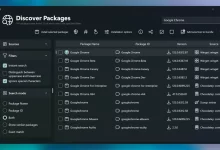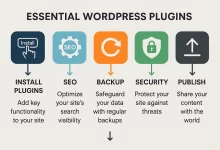Hey everyone! If you’re involved in JavaScript development, you’ve undoubtedly heard about Bun, the rising star that has quickly become the talk of the community. Node.js has been the backbone of JavaScript runtimes for years, but now, in 2025, the question is more relevant than ever: Should you switch your runtime from Node.js to Bun? Let me break down my thoughts, experiences, and findings to help you decide.

Why Consider Bun in the First Place?
Bun emerged as a fresh alternative, promising impressive speed and simplified workflows. It’s built with modern standards and improved security, focusing heavily on performance—exactly where developers faced bottlenecks with Node.js. Here are some key points worth mentioning:
Bun’s Major Benefits
- Blazing Fast Performance: Bun utilizes JavaScriptCore instead of Node’s V8, resulting in notably faster execution times. This speed boost makes Bun especially suitable for performance-critical applications.
- Improved Developer Experience: From built-in support for TypeScript and JSX to simplified dependency management, Bun streamlines your development workflow, reducing the friction often encountered in Node.js.
- Simpler Dependency Management: Bun comes with a built-in package manager that’s incredibly fast, straightforward, and reliable, minimizing headaches associated with complex Node.js setups.
- Enhanced Security and Modern APIs: Bun adopts modern, secure API standards, making it safer by default and reducing security-related stress compared to Node.js setups.
Why Node.js Still Matters
Despite Bun’s impressive rise, Node.js isn’t fading into oblivion anytime soon:
- Vast Ecosystem: Node.js boasts a massive, mature ecosystem with extensive community support, documentation, and countless libraries that make it highly reliable.
- Proven Stability and Compatibility: Many enterprises continue to rely on Node.js due to its stability, long-term support versions, and backward compatibility.
- Community and Hiring: Node.js expertise remains highly sought-after, ensuring ample professional opportunities and strong community backing.
My Recommendation: Should You Switch?
If your project demands maximum performance, enjoys flexibility, and you’re excited by innovative technologies, Bun is worth adopting right now. Especially for startups, small teams, or projects without heavy legacy dependencies, Bun is incredibly promising.
However, if stability, proven infrastructure, and extensive community resources matter more for your enterprise-scale project, sticking with Node.js is sensible—at least for the immediate future.
Final Thoughts
Ultimately, the choice depends heavily on your project needs, existing infrastructure, and your team’s adaptability. Bun represents a compelling shift toward the future of JavaScript runtimes, but Node.js continues to provide robust reliability and stability.
I’m excited to see how this landscape evolves in the coming years. Have you tried Bun yet? Let me know your thoughts!

 FoxDoo Technology
FoxDoo Technology






